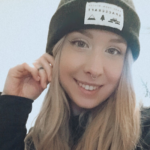The Social Construction of Difference event, hosted by the events coordinator for the Criminal Justice Student Association, Liam Cook, was a series of talks from community service workers in Abbotsford followed by a Q&A period. The event was held in the Student Union Building last Tuesday, March 12. For those students and faculty members who were there, this took form as an intimate discussion on the work being done for different groups of people in the community who have been discriminated against and marginalized.
Speakers included Alison Gutrath, Megan Capp, and Allen Doerksen, who all do community work in Abbotsford to combat issues created by social marginalization and discrimination. The afternoon began with an introduction from Cook, who stated that the intention of the gathering was to be an engaging experience where those in attendance could address issues concerning power and privilege, and discuss resolutions. Each speaker took their turn at the stand to share their work and the meaning behind it.
The first speaker was Gutrath from Abbotsford Community Services (ACS), one of Abbotsford’s main social service agencies. Gutrath is a UFV alumni and has 19 years of experience working in the social services field. Gutrath is currently the coordinator for Diversity Education and Resource Services at ACS. For the past five years, she’s also been serving as the community coordinator for the gang prevention and intervention program, In It Together. Gutrath spoke about how to support victims of hate crimes and the importance of people being aware of the definitions of discrimination and educating each other.
In response to an audience question about how we can respond to hate crimes on social media, Gutrath spoke about the different types of witnessing: active, passive, and ethical. She said that where active witnessing would be responding to discrimination by calling the perpetrator out, passive witnessing is noticing discrimination and ignoring it.
“Ethical witnessing is where we try to create change,” Gutrath said. “So, if it were, say, a post that was in a group on Facebook that you belong to, then maybe contacting the admin for that Facebook group and saying, ‘I think we need to look at the rules, because there’s hateful things being posted.’ Or, ‘People are being racist, what can we do about that?’”
She also introduced the attendees to the Abbotsford Community Protocol, a resource guide to assist community members and stakeholders in responding to critical incidents of discrimination and hate crimes with a step-by-step guide.
Capp, also from Abbotsford Community Services, spoke about her role as manager for supportive housing. She was essential in establishing the Hearthstone Place supportive living facility in Abbotsford two years ago. Capp said Hearthstone Place is low-barrier, long-term housing facility with 30 beds that supports men and women who are homeless or at risk of homelessness. She explained her struggle with the city and resistance from local business owners and citizens throughout the journey of opening this long-term supportive housing project, and the success it’s been since its inception. She stated that many community members and residents who lived around the area where Hearthstone was built were opposed to the project and had concerns about an increase in needles, condoms, and other harm reduction supplies being littered on their properties.
“As you can imagine, that didn’t happen … there’s always these community conflicts, there’s always this resistance, and always, once the building has been up and operational, you find that there’s not an increase in property crime, there’s not an increase in nuisance,” Capp said.
Finally, we heard from Doerksen, a priest and a chaplain at two Anglican churches in the Fraser Valley. Doerksen studies the philosophy of religions and is passionate about bridging the gap between the queer community and religion, the later of which, he said, has acted exclusionary towards the LGBTQIA+ community. He spoke about church leaders interpreting biblical passages out of their historical context, and how it has led to misunderstanding and the enabling of homophobic beliefs within the church. He spoke of the present as being a “Kairo’s moment” in that it is a time pregnant with change.
The question periods after each speaker were thoughtful and open conversations about each speaker’s work and how the broader issues of social marginalization could be addressed. Students and faculty didn’t hold back in their questions, some even openly challenging speakers on their statistics and asking hard questions about the purpose behind their work, while others made connections. Overall, this was a learning experience for everyone in attendance and a way for local community workers to spread awareness about the work they are doing.
Coming together as a group to openly discuss issues in the community and ask hard question of ourselves and others is how change happens. I believe Cook closed the event best with his words: “You are all artists of change. From here, everything starts.”

Darien Johnsen is a UFV alumni who obtained her Bachelor of Arts degree with double extended minors in Global Development Studies and Sociology in 2020. She started writing for The Cascade in 2018, taking on the role of features editor shortly after. She’s passionate about justice, sustainable development, and education.


